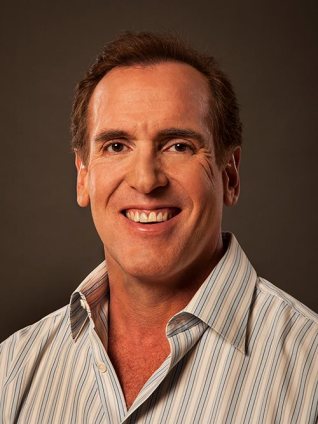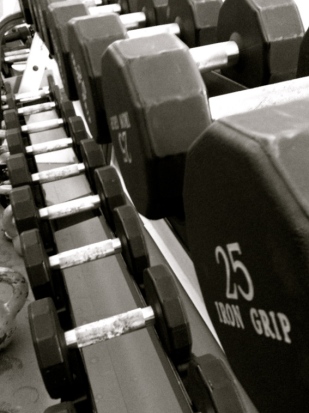I can’t begin this post without first stating that in no way is this about Rachel Frederickson. I don’t know her, I never met her and I’ve never had any contact with her. I am also not a part of The Biggest Loser and don’t really know what goes on the behind-the-scenes.
While writing this, it feels uncomfortably clear that Rachel will likely be reading much of what is written about her and her body. She will read the criticisms, concerns and maybe even how impressed and inspired people are. I want to express that the intention of this post is to draw attention to the larger issues at hand and not to criticize Rachel in any way.
However, Rachel is at the center of this long overdue firestorm around The Biggest Loser and is an example of what I’ve been ranting about for years.
260lbs to 105lbs (a 59.62% loss of total body weight) in 7.5 months time. At 5’4″, that equates to a BMI of 18 – clinically underweight.
I have enormous respect for the men and women who choose to wage their internal battles and to do so publicly, is another level of courage. We all need motivation and if going on a reality television show is that for someone, then who am I (or any of us) to judge.
Some are entertained and maybe even motivated by these heartfelt stories. The network and staff make money from these same stories. It’s a fair trade. Participants get services for the fee of doing it publicly. As long as everyone is consenting and willful, so be it.
I do, however, have an enormous problem with the treatment of those who are willing to be vulnerable (body and soul) in front of an audience of millions and share the innermost struggles that have haunted them for years, most times decades. Their willingness to do this does not give license for inadequate and improper treatment.
To my knowledge, most (if not all) of these participants at some point in their journey have an emotional epiphany that their relationship with food is actually related to their relationship with themselves and that this is the root of the problem. This is an eating disorder defined! So if we acknowledge this, now we have a show about men and women who are struggling with eating disorders and we are watching them deal with the food and exercise part of their treatment. Except… where is the treatment? Where is the intense psychotherapy that is necessary to deal with the underpinnings of eating disorders? We know that a positive prognosis for eating disorder recovery has to do with three things: specialized treatment, adequate amounts of treatment and long-term follow-up. The Biggest Loser offers none of these things. So in essence, The Biggest Loser is treating the symptom of the eating disorder (the food piece) without addressing the things that will actually affect real, long-term and meaningful healing and change.
My other concerns are about the fitness professionals on the show offering some sort of intermittent therapy throughout these weight loss journeys. Offering any type of therapy falls outside of their scope of practice and is in direct conflict with their Code of Ethics.
We also know that losing a large amount of weight in a short period of time is dangerous. Additionally, having formerly sedentary individuals take on rigorous and intense exercise regimes is also dangerous. I realize that there is a full medical staff who monitors them but the fact that this is necessary is my case in point.
I can go on and on about how these types of shows are exploitative but the fact remains that these are the types of shows that bring in ratings and money to those involved so there is an investment in keeping them alive and running. I will table that for another time.
But I will say… if we are going to have shows like these, despite my stated opinion, then they need to be done responsibly. The issues need to be dealt with appropriately and the participants need to be taken care of.
The Biggest Loser finale seemed uncomfortable for everyone. Rachel Frederickson’s transformation was undeniably extreme and the looks on the trainer’s (and everyone’s) faces reflected that. I can understand the way the show unfolded because it would have been even more awkward and even unfair to Rachel for the show to have been halted and an intervention be made right there, on the spot, in front of millions. The show progressed as it needed to.
Since then…
Jillian Michaels’ Twitter response was this:

The Biggest Loser’s Twitter response was this:

Rachel’s The Biggest Loser trainer’s, Dolvett Quince’s, Facebook response was this:
Rachel Frederickson had a media conference call yesterday morning (you can see the transcript at realityworldtv.com) and when asked about her food and exercise routine, Rachel explained that she was given a 1600 calorie budget by her “support system” at The Biggest Loser and would take “maybe three or four classes a day and just really have fun with all the people in the room. It was pretty cool! I’d be in Zumba and then I’d be going to spin class, and actually, I never used to like running. And so now, I really like running.“
The interviewer’s response: “That is a lot of exercise in one day though! Impressive.”
“Impressive?!?!” – REALLY?!?!?!
What is critical is what happens now. I don’t point a finger at any one person in particular but collectively, there is a huge problem here. Do we accept this transformation as “impressive” or do we dig a little deeper and stay with the uncomfortable truth that there is more here than what meets the eye? And will “we” as a society turn the other cheek and thus, sign off on the irresponsibility that is happening here with The Biggest Loser and shows of the like?






